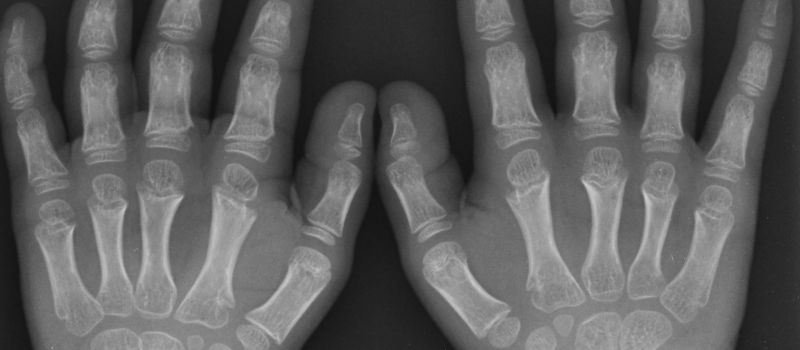Growth Hormone Deficiency (Dwarfism)
By Canada Cloud Pharmacy | Published Friday 23 July 2021

Growth hormone deficiency is a rare condition that occurs approximately in 1 out of 7000 births. The deficiency occurs when your pituitary gland, located at the base of your brain, fails to produce enough growth hormone. Since growth hormone is necessary for your average body growth, its scarcity or absence affects the overall development of your body.
The condition is termed pituitary dwarfism. Children who suffer from growth hormone deficiency are shorter than normal children of the same age and gender. Let us discuss what happens in growth hormone deficiency.
Symptoms of growth hormone deficiency:
Growth hormone deficiency may be congenital (at birth) or acquired (occurs later). You may have the following symptoms:
-
Slow or absence of growth and below-average height in children.
-
Short stature that belongs to the fifth percentile of children belonging to same-sex and age.
-
A very small penis in male infants born with the deficiency.
-
Low blood glucose levels in infants and toddlers.
-
Slow onset of puberty.
-
Fatigue and lack of stamina.
-
Sensitivity to hot and cold temperatures.
-
Increased bone fractures in adults.
-
Psychological changes such as low esteem, depression, lack of concentration, and poor memory.
Causes of growth hormone deficiency:
Growth hormone deficiency may be congenital. The condition is many times idiopathic (no known cause). If it occurs later in life, the following factors may cause it:
-
Tumor in the brain
-
A brain infection
-
Injury to the brain
-
Radiation treatment
Diagnosis of growth hormone deficiency:
Doctors will assess your child’s height and other growth parameters according to the standards in the growth chart. They may suggest the following tests:
-
X-ray of hand to check bone growth.
-
Blood tests to rule out other conditions that affect growth.
-
Blood tests to check levels of insulin-like growth factor-1 and insulin-like growth factor-binding protein.
-
A stimulation test involves giving medicine to stimulate growth hormone production. If the growth hormone levels do not rise, it suggests that the pituitary gland is not making enough growth hormone.
-
Magnetic resonance imaging (MRI) of the brain to check any abnormalities.
Treatment options for growth hormone deficiency:
Doctors may prescribe injections of synthetically manufactured growth hormone to be given below the skin for children. Examples are Genotropin, Humatrope, Norditropin, Nutropin, and Omnitrope (Available as a pen). Treatment with growth hormone may show side effects such as headache, nausea, vomiting, fatigue, muscle pain, or weakness. After every 3-6 months, the response to the therapy will be monitored by investigating the hormone levels in the blood. While some children require the treatment until they reach adolescence, as they start making their growth hormones, others may need it even as they enter adulthood. Keep in mind that the treatment with
It is best to consult a doctor if you notice any growth delays in your child. Timely diagnosis of the condition and prompt treatment helps in treating growth hormone deficiency efficiently.



 Canadian Company
Canadian Company 



 Sign In
Sign In
 Home
Home 
 About Us
About Us 
 How to order
How to order 
 Products
Products 



